1. Marinate the shrimp and scallops with white pepper powder.
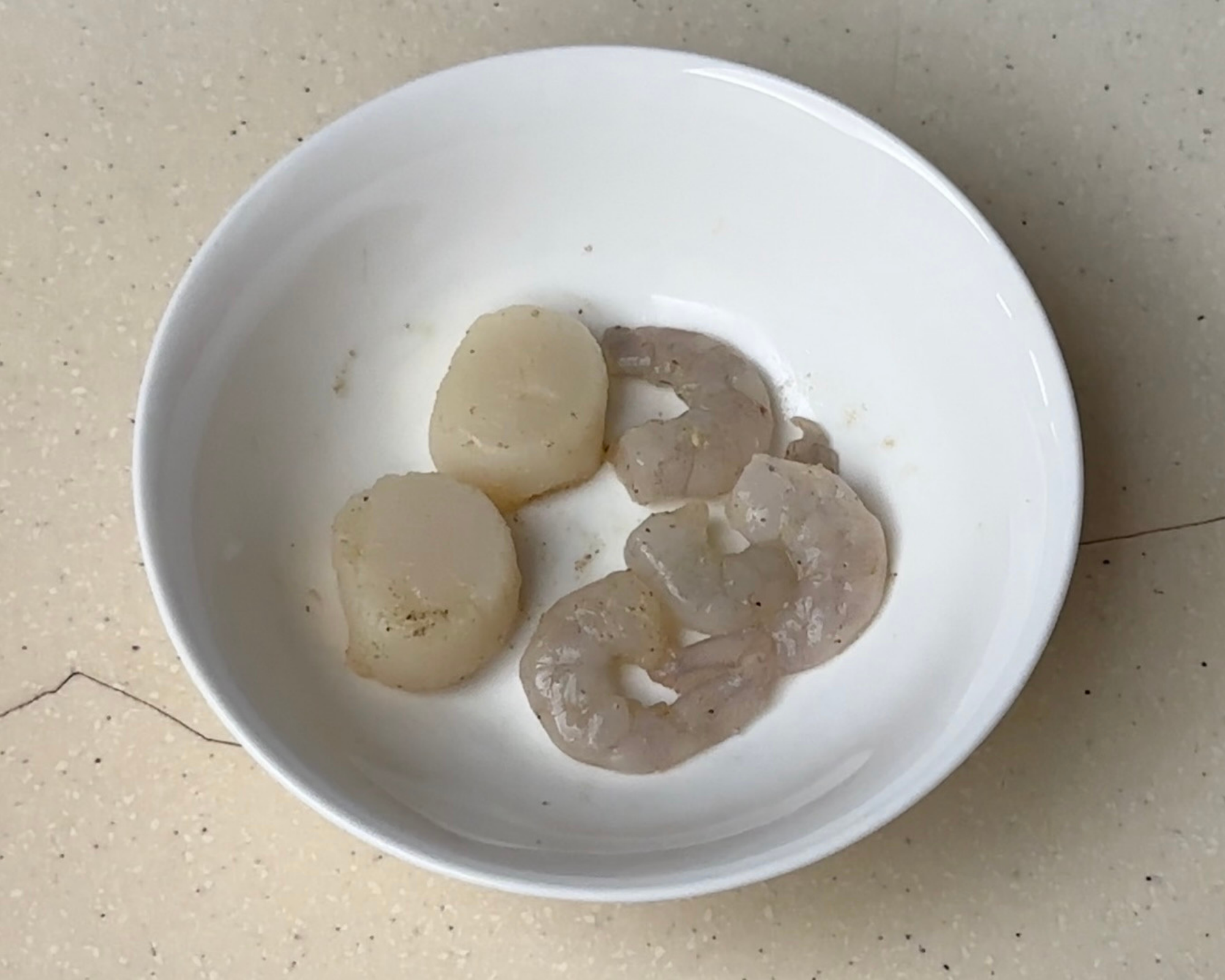
2. Remove the seeds of the pumpkin. Peel it and cut it into thin slices. Slice the onion.

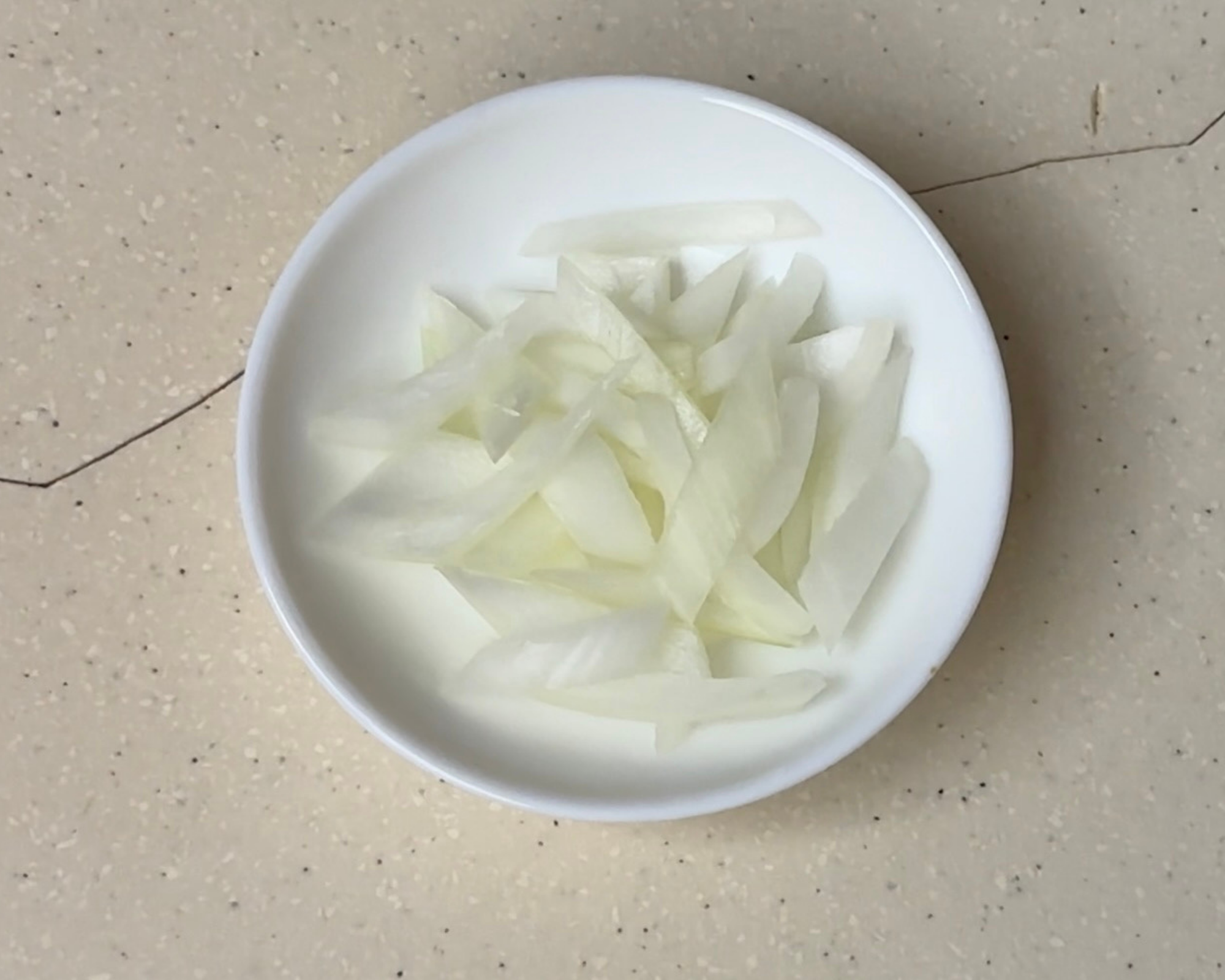
3. Pan fry the shrimp and scallops with 1/2 tablespoon of oil until they are cooked. Set aside.

4. Stir fry the onion with 1/2 tablespoon of oil until fragrant. Then, add the pumpkin in. Stir fry briefly.


5. Add 250 ml of water. Simmer until the pumpkin slices are softened.

6. Discard the water and blend the onion and pumpkin with milk until smooth.
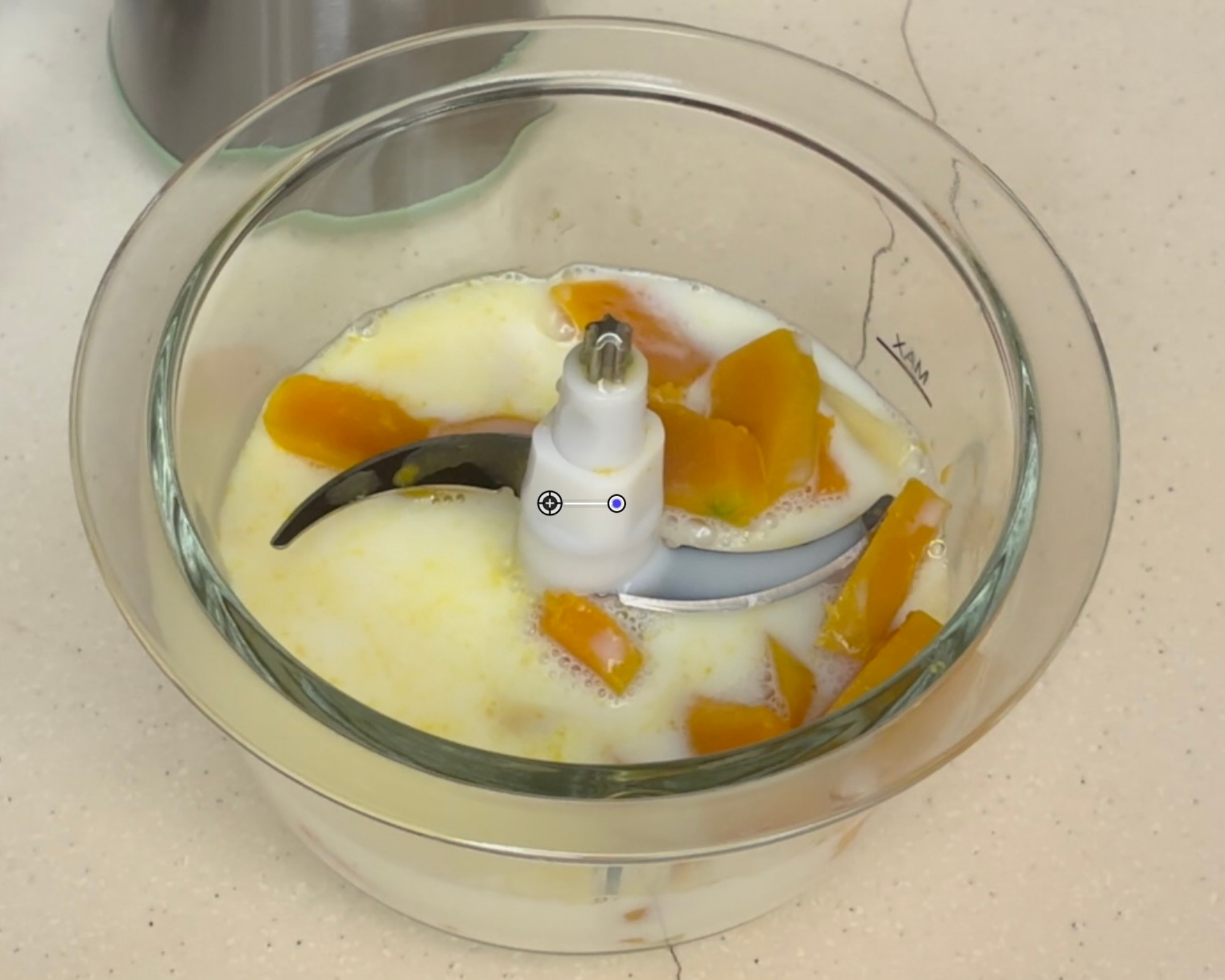
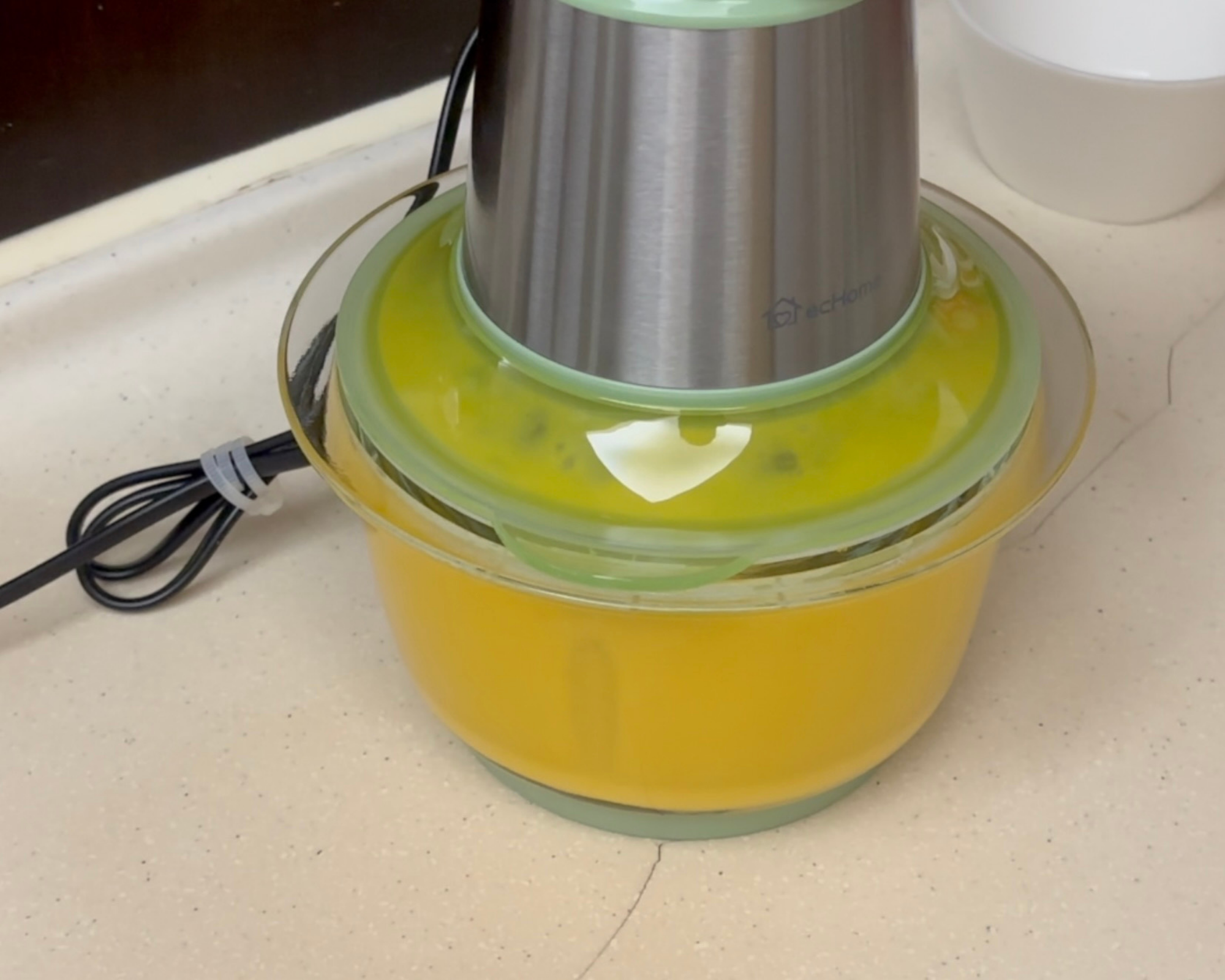
7. Add the shrimp and scallops in. Heat the soup over medium to low heat. Stir gently and simmer until the soup reaches your desired texture.

8. Season with salt and black pepper.

9. (optional) top the soup with almond flakes.
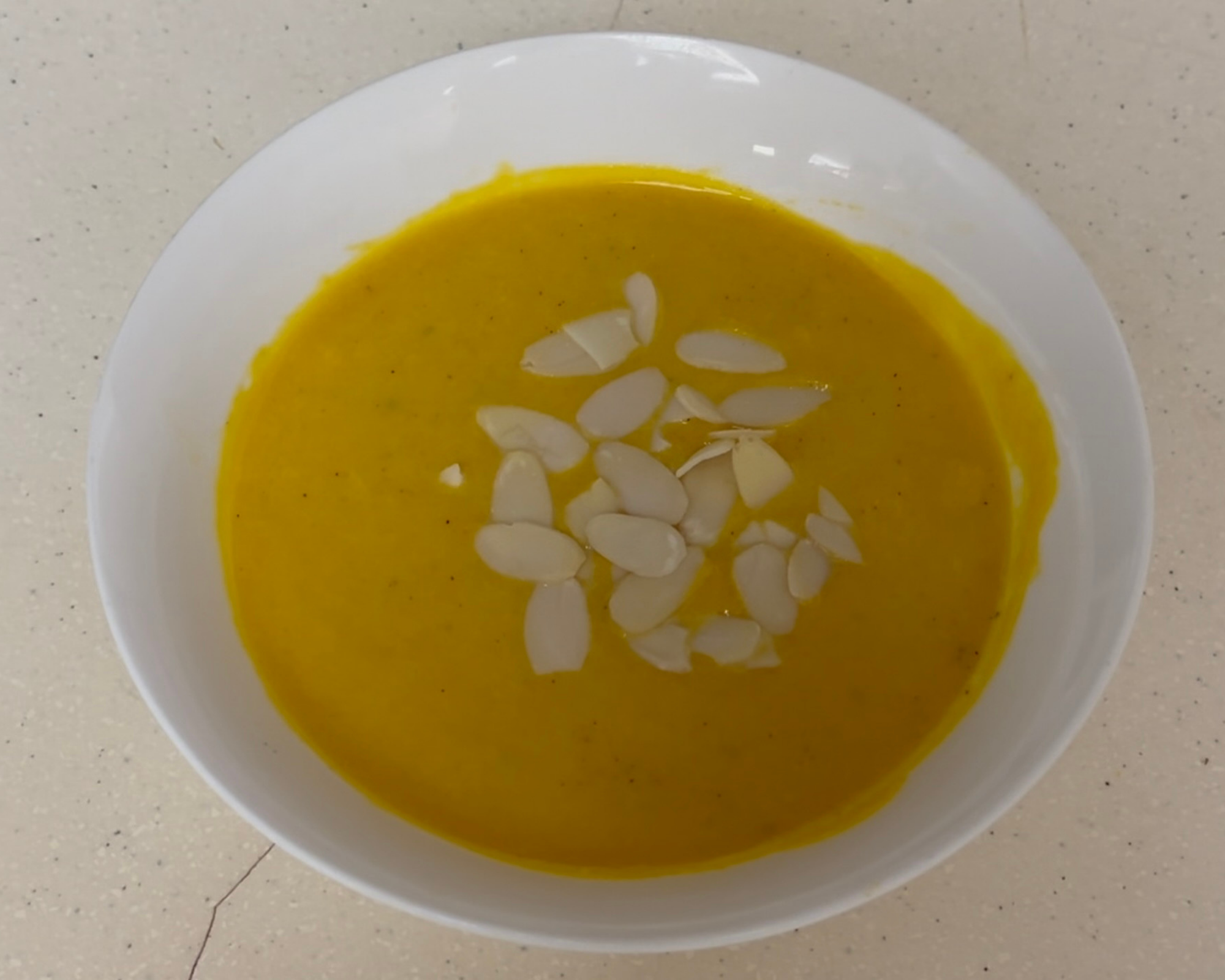
10. Ready to serve.
11. Video:▶️ Seafood Pumpkin Soup

Nutrition information
Serving size: 407 g
Nutrient contents per serving:
|
Energy
|
349 kcal
|
|
Protein
|
21.1 g
|
|
Total fat
|
17.5 g
|
|
Saturated fat
|
2.6 g
|
|
Carbohydrate
|
30.0 g
|
|
Dietary fiber
|
2.6 g
|
|
Sugar
|
17.4 g
|
|
Sodium
|
461 mg
|
Prepared by Mr. Leung David Chung Wai (Food & Nutritional Science student, HKU)
Reviewed by Dr. Daphne Wu (Food & Nutritional Science, HKU)















